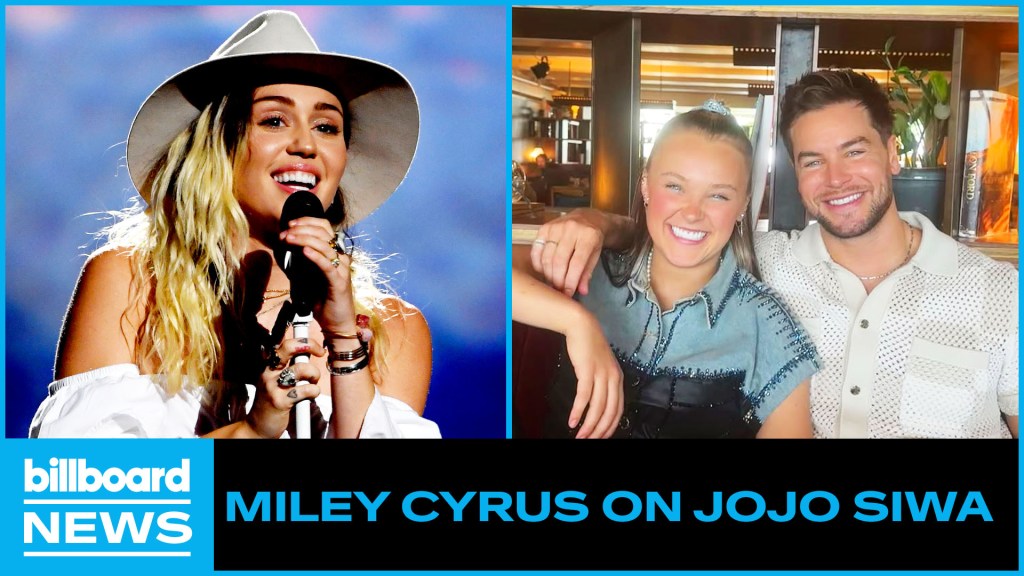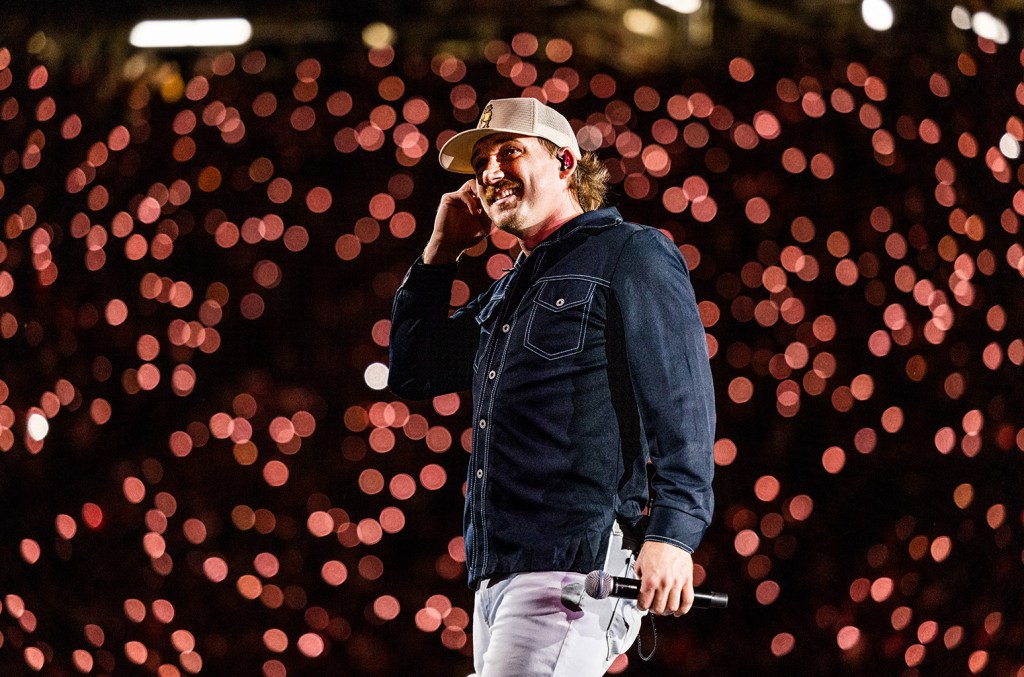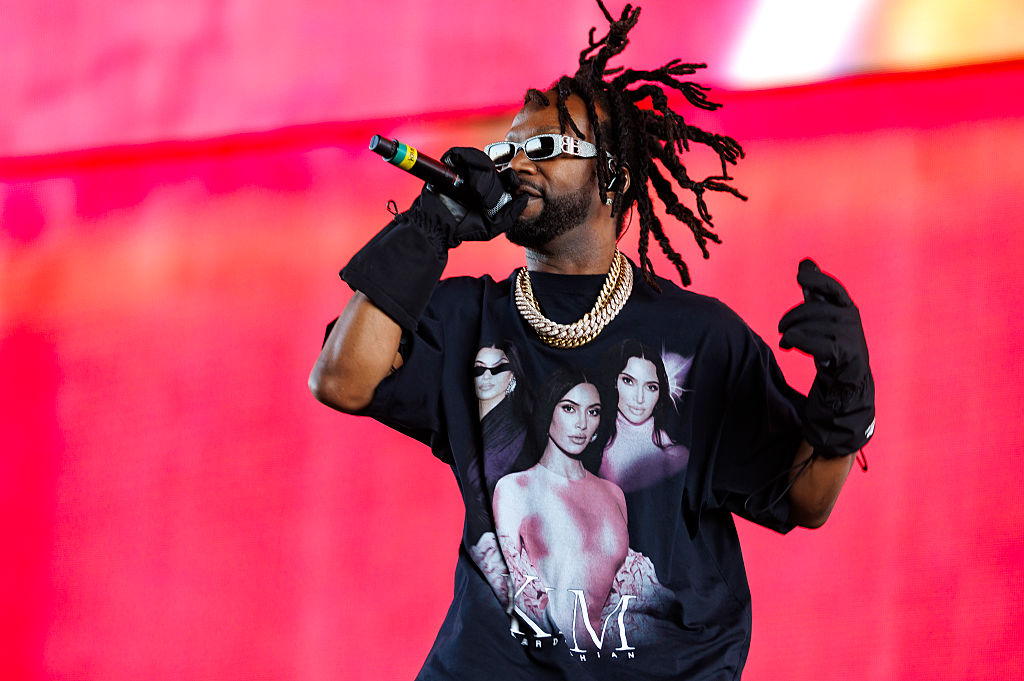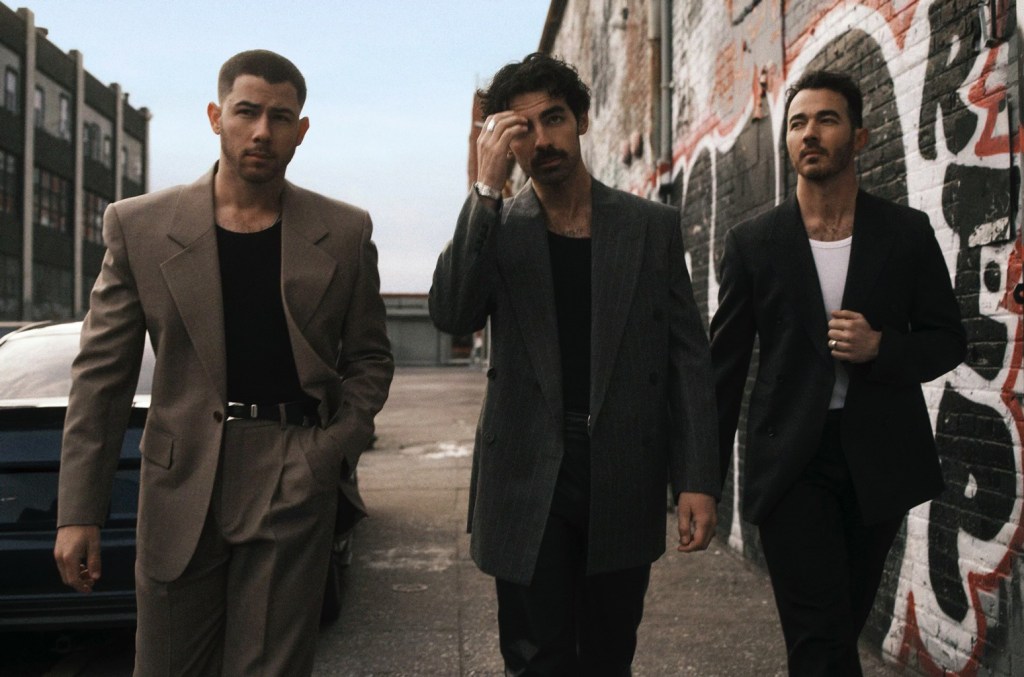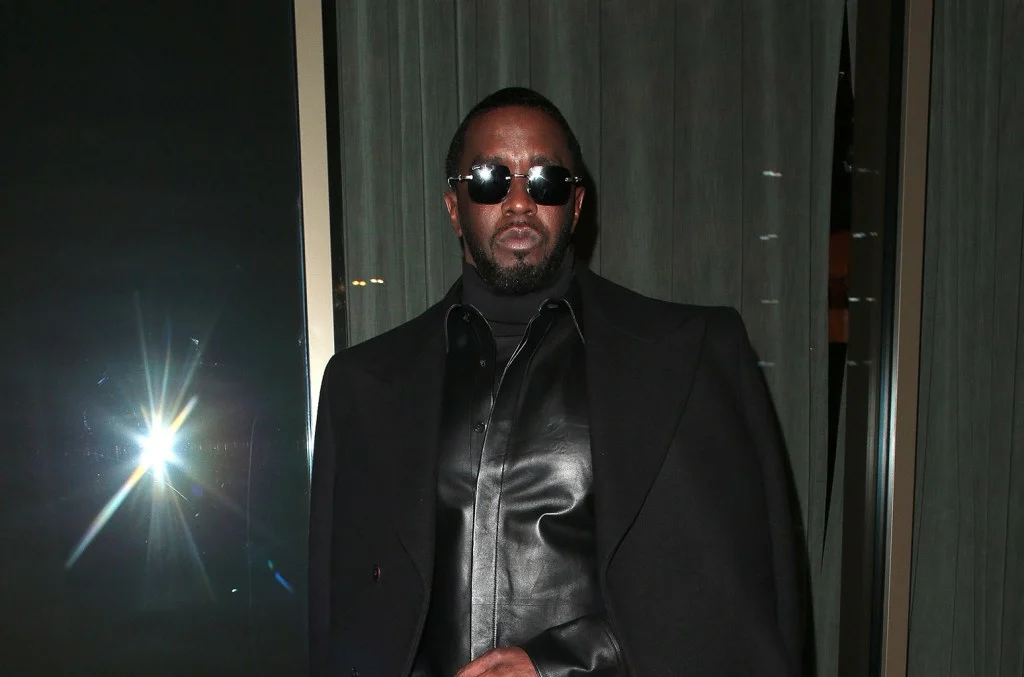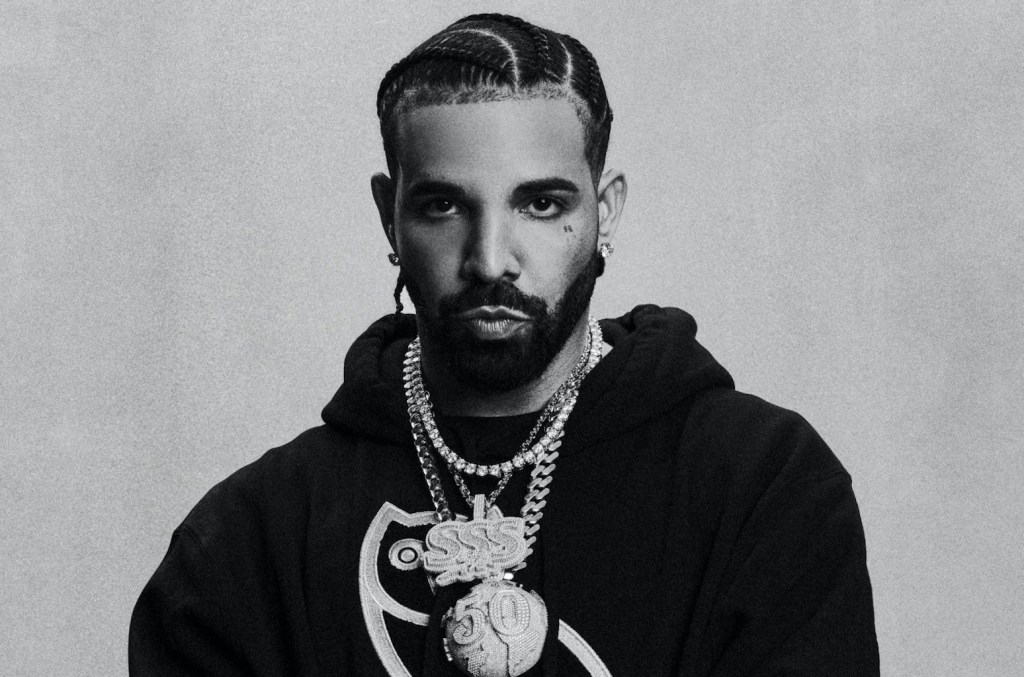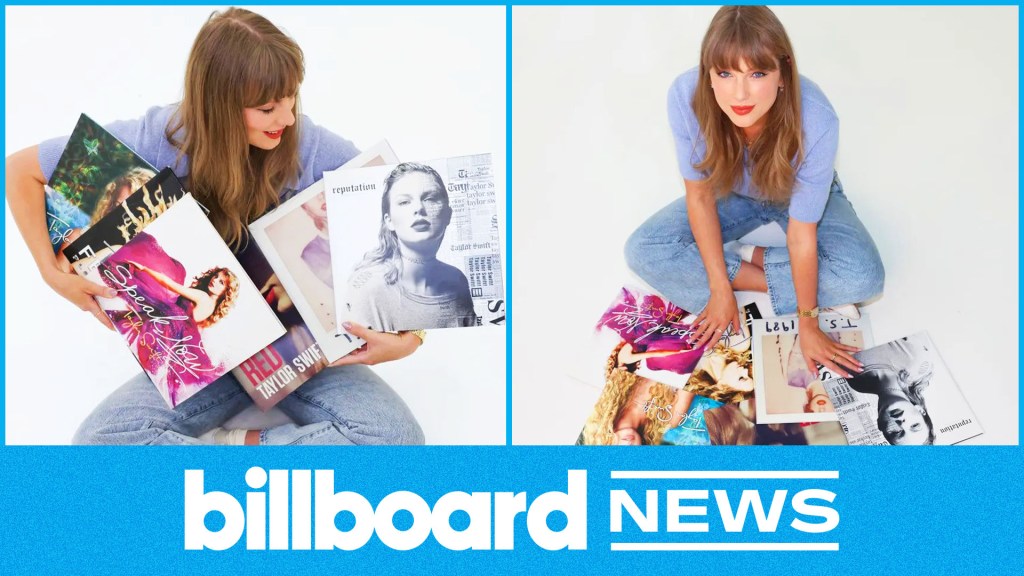News
Page: 270
The Billboard video staff is reacting to Miley Cyrus’ joke about JoJo Siwa’s sexuality seemingly changing with her new relationship with her fellow Big Brother contestant, Chris Hughes and the conversation on social media that goes on regarding sexuality and celebrities especially during Pride month.
Tetris Kelly
All right, so guys, I don’t know if you saw it. At World Pride, Miley Cyrus posted a little video in which she said, “I’m gonna go back into the closet where maybe I can find JoJo Siwa.”
Well, as we all know, JoJo Siwa is now publicly dating a man, Chris, and so people are saying like, Hey, did she go back in the closet? Was she fake gay? There’s a whole thing.
Judy Sanchez
I’m kind of shocked that Miley would say that.
Stefanie Tanaka
I mean, I think people have been kind of accusing a lot of stars of doing that. They were talking about Fletcher also, like, dating a man after she said that she was a lesbian or something.
Tetris Kelly
I mean, we all know that sexuality is on the spectrum for pretty much everybody, so you should be able to kind of do what you want to do. I don’t think it changes anything for JoJo. But what is interesting to me is that JoJo has always, in multiple interviews, multiple times, gave a lot of credit to Miley Cyrus. So what’s to be said when somebody that you look up to is commenting on your personal life? Because now JoJo is speaking out about it.
Jerah Milligan
Wait. So my question is, is Miley gay?
Stefanie Tanaka
She said she’s pansexual, which means that her sexuality is fluid. So, I mean, that’s not necessarily saying that she doesn’t, she can’t date a man, right? You know, just she said before that she doesn’t really care about, like, you know gender.
Judy Sanchez
She’s so hung up on the label. Yeah, she herself. Well, I think Miley’s brand is so, like, free and, fluid.
Stefanie Tanaka
Well, I feel like people are more hung up on labels, like, if you say that you’re gay, they’re like, you have to be gay. Well, she’s like, I don’t know if it works that way.
Jerah Milligan
She can’t be bi? I guess my thing is like, look, I guess I’m confused on what’s wrong. And like, she dates women, now she’s dating a dude. She could date a woman after this dude.
Watch the full video above!
Morgan Wallen fans are getting an early look at his setlist ahead of the opening night of his upcoming I’m the Problem Tour on June 20 at NRG Stadium in Houston, thanks to Apple Music Country.
The 27-song playlist features not only many of Wallen’s earlier hits, such as “Whiskey Glasses,” “More Than My Hometown,” “One Thing at a Time,” and “Ain’t That Some,” but also many songs from the tour’s namesake album, last month’s I’m the Problem.
Among the new songs on his tour setlist are “I Got Better,” “Love Somebody,” “Kiss Her in Front of You,” “I’m a Little Crazy,” “What I Want,” “Superman” and “20 Cigarettes.”
To Apple Music Country, Wallen said, “There’s a bunch of songs on there that I’m excited to play,” noting that he’s excited to sing “I’m a Little Crazy” (“I love singing that song,” he says) and “I’m The Problem” (“I already see how well it’s doing,” he says).
He also said it’s “the energy” that marks a major difference between hearing a song and seeing the artist perform it live in front of thousands of fans.
“I spend months at this point getting ready to get on tour, just getting in shape,” he says. “I don’t have to be in any kind of crazy shape to record in the studio. With how big my stage is, how much I run around, and how much effort that me and the guys put into it, I don’t think you would know that by just listening to the record.”
Wallen’s I’m the Problem Tour comes just over a month after the release of his I’m the Problem album and the launch of his Sand in My Boots Festival. The trek will conclude with two shows on Sept. 12-13 in Edmonton, Alberta. Artists set to open various shows on the tour are Brooks & Dunn, Miranda Lambert, Thomas Rhett, Koe Wetzel, Gavin Adcock, Corey Kent, Ella Langley and Anne Wilson.
Here’s every song listed on Apple Music Country as part of the setlist for Wallen’s upcoming tour.
“Broadway Girls” (Lil Durk feat. Morgan Wallen)
Source: Christopher Polk / Getty
Racial tensions may be high out in public due to a certain divisive Presidential administration that seems to feed off of chaos, fear and prejudice but at least in Hip-Hop we’re still seeing unity amongst its racially diverse artist as we all know that music in itself is a universal language.
Proving that point is Juicy J and Logic as the two rap artists link up for the visuals to “The Problem” in which Juicy and Logic due their thing on a sunny day while people are seemingly raptured into the air as if the time of judgement is upon us. The way things are going on in the world today, this doesn’t seem that farfetched. Just sayin.’
Lil Flip and Z-Ro meanwhile get their royalty on and in their clip to “Meet The Kingz,” the two Southern rappers kick back on their thrones before turning up on some Cyber Trucks and being celebrated by their adoring fans.
Check out the rest of today’s drops including work from Bino Rideaux and Blxst, Demrick and B-Real, and more.
JUICY J & LOGIC – “THE PROBLEM”
LIL FLIP & Z-RO – “MEET THE KINGZ”
BINO RIDEAUX & BLXST – “GO BESTFRIEND”
PAUL WALL & DJ FRESH – “IT’S NECESSARY”
DEMRICK & B-REAL – “FRIEND CHICKEN FRIDAY”
ICEWEAR VEZZO – “SHOP WITH US”
BAY SWAG & MEEK MILL – “SEVENTEEN”
SHORELINE MAFIA – “BROSKI”
HipHopWired Featured Video
No, don’t get stressed, it’s gon’ get figured out! Jonas Brothers sent a note to fans on Friday (June 13) explaining a major update involving venues in six different cities on their upcoming JONAS20 anniversary tour. “To the fans, we’re so excited to get out and be with you for our 20th Anniversary Tour! Every […]
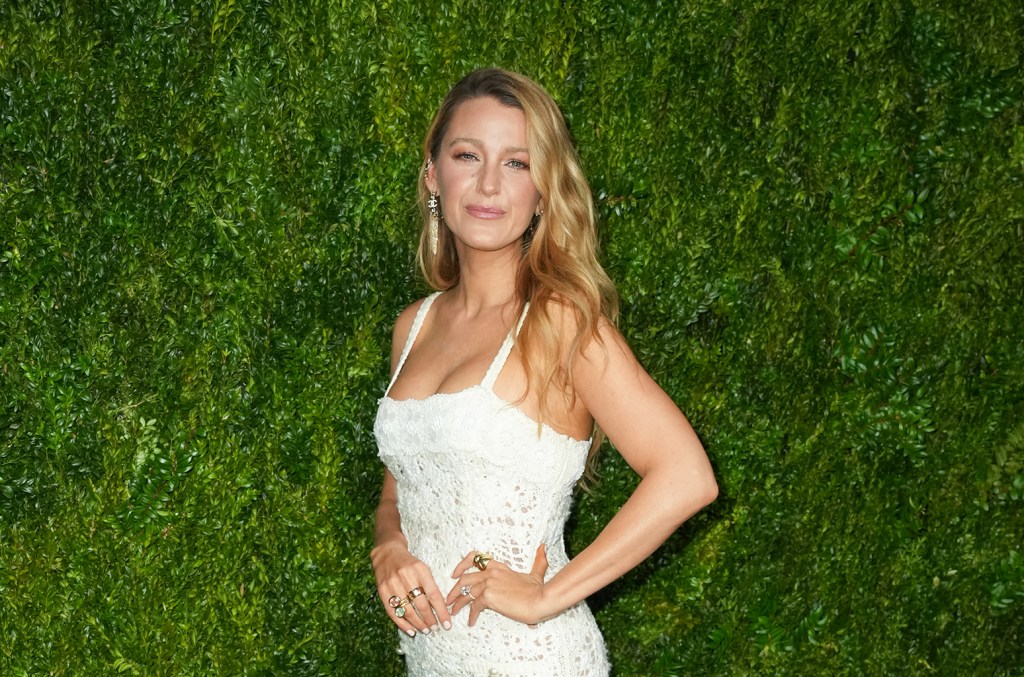
Blake Lively is fighting Justin Baldoni’s continued attempts to see her texts with Taylor Swift in the It Ends With Us litigation, saying the movie’s director and co-star shouldn’t be allowed to drag Swift into the court battle just to generate “sensational headlines.”
Lively filed a motion on Friday (June 13) asking a federal judge to shut down Baldoni’s discovery request seeking all communications between the actress and Swift, her longtime close friend, related to It Ends With Us or Lively’s lawsuit alleging Baldoni sexually harassed her on the film’s set and then orchestrated a smear campaign in retaliation for her complaints.
Baldoni and his production company, Wayfarer Studios, previously sought these communications via subpoenas to Swift and her lawyers. But the pop superstar’s reps vehemently opposed the subpoenas as “tabloid clickbait,” and Baldoni withdrew the requests last month.
Trending on Billboard
According to the Friday filing, Lively’s team is unsure whether Swift handed over any texts as part of a deal with Baldoni to get the subpoenas dropped. Though Swift’s attorney advised them that “no documents are being produced,” the same day, a Daily Mail article quoted an “insider” stating that the Wayfarer team got “exactly what they were seeking” from the pop star.
Lawyers for Lively say this “insider” quote, published by a Daily Mail reporter with known ties to Baldoni’s publicists, could be interpreted either to mean that Swift produced documents or that the hefty tabloid coverage of Swift’s subpoena was enough to achieve Baldoni’s aims.
“Either interpretation of the reason the Wayfarer parties withdrew the subpoenas warrants the entry of a protective order,” write Lively’s attorneys. “If the Wayfarer parties received documents from Ms. Swift such that they have ‘exactly what they’ need, then the discovery sought … is cumulative and duplicative, and need not be produced again by Ms. Lively.”
“If, on the other hand,” Lively’s lawyers continue, “the Wayfarer parties were ‘seeking’ only sensational headlines by serving the subpoenas rather than materials to support their claims and defenses, they are not entitled to the information… The purpose of civil discovery is to obtain information relevant to claims and defenses in court, not to prop up a public relations narrative outside of court.”
Some of the ”sensational headlines” generated by the Swift subpoena revolved around allegations from Baldoni’s lawyers that Lively had asked Swift to delete text messages and tried to extort her into voicing public support for the sexual harassment lawsuit. These claims, attributed to an anonymous source and denounced by Lively’s team as “categorically false,” were struck from the case’s docket after Judge Lewis J. Liman determined they were improper, irrelevant and “potentially libelous.”
Judge Liman dealt another loss to Baldoni earlier this week when he threw out the actor-director’s defamation countersuit, which alleged that Lively conspired with the New York Times, her husband Ryan Reynolds and publicist Leslie Sloane to fabricate the sexual harassment and retaliation claims.
A rep for Lively cited this dismissal ruling in a statement to Billboard regarding Baldoni’s continued pursuit of the actress’ communications with Swift.
“The ongoing attempts to once again try and use the world’s biggest star as a PR tactic in this matter reflects a public unraveling of epic proportions — and serves only to distract from the fact that Justin Baldoni’s lawsuits against Ms. Lively, Ryan Reynolds, their publicist and the New York Times have been entirely dismissed,” said a Lively spokesperson on Friday (June 13).
Reps for Baldoni and Swift did not return requests for comment.
The continued fight over the Swift text messages comes as Lively is serving her own subpoena on the singer’s public opponent, Scooter Braun. Lively wants to know what Braun knows about the alleged smear campaign orchestrated by publicity firm The Agency Group PR, a controlling stake of which is reportedly owned by Braun’s company, HYBE America.

Following the recent sexual assault accusations against Contemporary Christian Music star Michael Tait, Hayley Williams is speaking out against the genre as a whole for allegedly enabling his behavior for years.
Sharing a screenshot of The Guardian‘s Friday (June 13) investigation into the former Newsboys member’s actions, the Paramore frontwoman wrote in a statement on her Instagram Story, “The amount of things i have to say and the amount of people i know who were likely changed forever by this man and by the industry that empowered/enabled him …”
“I grew up around this,” Williams continued. “I am not afraid of any of these people — most of them have written me off anyway by now. How many stories like this from this VERY small corner of the music industry will we hear before we realize that [capitalizing] on people’s faith and vulnerability is the ‘sin?’”
The pop-rock singer’s post comes about a week after Christian news site The Roys Report published findings from a two-and-a-half-year investigation into Tait, with three men claiming that he groomed and sexually assaulted them between 2004 and 2014. Sources also detailed how Tait had allegedly long abused drugs and alcohol, despite years of encouraging sobriety and abstinence in his music.
Days later, Tait said he was “ashamed” and confirmed that there was truth to the allegations, writing in a response, “For some two decades, I used and abused cocaine, consumed far too much alcohol and, at times, touched men in an unwanted sensual way … I will simply call it what God calls it — sin.”
But on Friday, The Guardian‘s piece — in addition to sharing more details about how Tait allegedly secretly drugged and molested a minor — expanded upon how the CCM industry at large allowed for his behavior to go unchecked, the same thing Williams emphasized in her post.
“This is a man who’s entire faith identity is built upon a faulty structure of self-hatred, to please a system that would rather cover up abhorrent behavior for 20+ years (and make money off of it) rather than accept that being gay is not the problem,” she wrote in her statement. “I hope the ccm industry crumbles.
“And f— all of you who knew and didn’t do a damn thing,” Williams added. “I bet I’ve got your number. and btw if you’re not angry too then maybe its time to question why.”
Tait got his start as part of the group DC Talk, which found groundbreaking success on the charts in the ’90s. He joined Newsboys in 2009, remaining there up until he abruptly stepped down from the band in January.
At the time, remaining bandmates Duncan Phillips, Jeff Frankenstein, Jody Davis and Adam Agee wrote in a joint statement that they were “grateful for the extended season Michael has had with Newsboys” — but following the publication of The Roys Report‘s piece, the four musicians wrote on Instagram, “We are horrified, heartbroken and angry at this report and in many ways, we feel as if we and our families have been deceived for the past fifteen years.”
In his statement, Tait admitted that he’d “deceived my family, friends, fans and even misled my bandmates about aspects of my life” for years before seeking treatment at a center in Utah.
“I was, for the most part, living two distinctly different lives,” he added earlier this week. “I was not the same person onstage Sunday night that I was at home on Monday … By His grace I can say that for the past six months, I have lived a singular life, one of utter brokenness and total dependence on a loving and merciful God.”
If you or someone you know has experienced sexual assault, you can call the National Sexual Assault Hotline at 1-800-656-HOPE (4673).

Consumer demand for live and out-of-home entertainment remains high, but Generation Z consumers — born between 1996 and 2020 — are particularly motivated to pay extra for convenience, upgraded experiences and sustainable options, according to a new EY survey. Perhaps not surprisingly, Gen Z is less patient than the average consumer. Nearly two-thirds (66%) of Gen Z respondents plan to buy a “fast pass” or priority pass to theme parks in the next year compared to 59% of all consumers, according to the inaugural EY Media & Entertainment (M&E) Pulse Poll, which surveyed 4,000 consumers across the U.S., U.K., Western Europe and the Asia-Pacific region. According to Javi Borges, EY global media and entertainment sector leader, companies that build convenience into their experiences can take advantage of consumers’ comfort with smartphone apps that offer digital ticketing and contactless payment and check-in. “When you look at the Millennials and Gen Z, there’s an expectation of a certain level of tech enablement and frictionless experience,” he says. “And even older generations post-pandemic, that maybe had never ordered Uber Eats until the pandemic, now they’re just much more accepting of the apps and the frictionless experience.” Speaking of Uber Eats, consumers’ desire for faster service is also reflected in a new McKinsey study, which found that delivery’s share of global food spending increased from 9% in 2019 to 21% in 2024, while takeaway’s share was flat and in-person dining fell to 55% from 69%. Though respondents weren’t polled specifically about music, this same trend toward speed and convenience can be traced in terms of modern-day music consumption habits, where streaming accounts for 69% of global music consumption in 2024 vs. 56% in 2019, according to the IFPI. And on the live front, concert promoter Live Nation says it now expects VIP offerings to account for 30% to 35% of its amphitheater business. Overall, McKinsey predicts that consumer tolerance for inconvenience will continue to decline as their desire for speed and service increases. Despite news headlines that consumers are at a financial breaking point, local entertainment (i.e., entertainment that doesn’t require travel) and live entertainment were purchased by 48% and 46% of respondents, respectively, according to EY’s poll. The poll focuses on companies’ pursuit of consumers’ “fun money,” which Borges calls the 10% to 15% of income people set aside for leisure activities. This segment of discretionary spending goes toward everything from music and video streaming services to concerts and vacations. “Globally, but especially in the U.S., we have more options battling for our fun money than ever before,” says Borges. Spending on live music, which offers an increasing menu of VIP options that provide greater convenience than basic offerings, is especially strong. As Billboard noted in May, a Bank of America study found that U.S. consumers spent an average of $150 a month on entertainment — such as live music and theme parks — from May 2024 to April 2025. Over the same period, credit card holders spent double that amount on live event tickets, racking up an average of $300 per month. In the same study, a third of respondents said they plan to attend more events this year than last year. Indeed, the trend in consumer spending — especially for the young, and especially since the COVID-19 pandemic — is toward experiences over material items. That said, people are willing to pay extra to make their experiences more pleasant or special. EY found that about half (49%) of respondents who visited theme parks or went on a cruise paid extra for premium options, while about a third did so for sporting events and casino/resorts. Younger demographics are also willing to spend a premium of 26% or more on sustainable features when it comes to buying entertainment experiences. For example, 12% of all consumers will spend more on carbon offsetting compared to 25% of Gen Z and 15% of Millennials. Willingness to spend extra based on water conservation practices also splits the age groups: 11% of all consumers globally, but 23% of Gen Z and 15% of Millennials. Live music has made strides to satisfy Gen Z’s preference for sustainable consumerism. Festivals are turning to batteries, sometimes powered by biodiesel or solar panels, instead of diesel-powered generators. That should be music to Gen Z ears: EY found that 24% of Gen Z would pay more for entertainment options that use renewable energy sources (versus 11% of all consumers) and 22% of Gen Z would pay a premium for lower energy consumption (versus 10% of all consumers). Looking ahead, Americans are more likely to spend money at a casino in the next year than people in other regions surveyed (66% versus 49% globally), while Asia-Pacific respondents have a greater preference for theme parks (74% versus 65% globally). About half (48%) of respondents expect to spend the same amount of money on live entertainment in the next 12 months as the past 12 months. The percentage of people who expect to spend more and spend less is almost equal at 21% and 20%, respectively.
With week five of the Diddy trial now in the books, Billboard is recapping the biggest moments you might have missed this week — from Jane’s blockbuster testimony to Kanye’s surprise appearance to the mysterious mention of an unnamed rapper.
The trial, expected to last until early July, will decide the fate of Sean “Diddy” Combs, who federal prosecutors say coerced ex-girlfriend Cassie Ventura and others to take part in freak-offs — drug-fueled sex marathons with male escorts for his entertainment. He has denied the charges; his attorneys say the events were consensual and part of a “swinger” lifestyle.
Combs is charged with five counts, including racketeering and sex trafficking, over those accusations. If convicted on all of the charges, he faces a potential sentence of life in prison.
If you weren’t following along for every moment this week, here are the five big developments you need to know.
Jane On The Stand
The week was dominated by testimony from “Jane,” an anonymous former girlfriend of Combs who says she was forced to participate in the freak-offs with male prostitutes.
Like Ventura, Jane told jurors about a complex romantic relationship, according to NPR — one that included real affection for the superstar, but also coercion and manipulation, including through promises of more time together or of financial support.
During cross-exam, defense attorneys tried to show Jane as a willing participant in the events, per The New York Times, by showing jurors a trove of text messages in which she appeared to have positive thoughts about the freak-offs. But she insisted she was simply telling Combs what he wanted to hear and was “putting on a show” during the events.
Mystery Rapper
At one point during her testimony, Jane described a night she allegedly spent with another famous rapper in January 2024 — setting off a debate between the legal teams over whether the mystery celebrity could be revealed.
On the night in question, per USA Today, Jane told jurors that she traveled to Las Vegas with the rapper and ended up watching what amounted to a freak-off — a male prostitute having sex with a woman — in the celebrity’s hotel room. She said the event later sparked rage in Combs, who demanded to know: “How could you go to another man’s freak-off?”
Prosecutors quickly urged the judge to bar any reveal of the rapper’s name, warning that it might threaten Jane’s anonymity if the name were divulged. Judge Arun Subramanian ultimately agreed to keep the name hidden, but defense attorneys gave clues — calling him an “icon in the music industry” and someone with a close relationship to Combs.
Jane v. Teny
Midway through cross-examination, Jane got into a heated exchange with Teny Geragos, one of Combs’ defense attorneys, over designer handbags.
According to TMZ, it started when Geragos asked if Jane, like another Combs girlfriend, received a Chanel bag from the rapper. Jane quickly shot back: “I only got trauma.” When Geragos then asked her what a Bottega bag was, Jane replied, “I’m sure you have one.”
“How much does it cost?” Geragos quickly asked her. “How much does my body cost?” Jane fired back.
The tense exchange highlighted Jane’s unusual position in the case. As reported by the Times, she dated Combs right up until his September arrest, didn’t participate in the criminal investigation until she was subpoenaed, and met with his defense attorneys repeatedly before the trial began. She also confirmed on the stand that he’s currently paying both her rent and her legal bills related to the case.
When she wrapped up her six days on the witness stand on Thursday, per CNN, Jane made an unusual move: She hugged the attorneys who had been questioning her, including prosecutor Maurene Comey and Geragos.
Ye Stops By
Ye, the rapper formerly known as Kanye West, dropped in on the trial on Friday (June 13), telling reporters he was there to support Combs.
Dressed in all white, Ye arrived at the courthouse late in the morning and spent about 40 minutes at the trial. Per the Associated Press, he didn’t make it into the main courtroom where the judge, jury and attorneys are arguing the case, instead watching testimony on a closed-circuit monitor in an overflow room.
Though hardly in the same kind of hot water as Combs, Ye has faced his own controversies in recent years — including posting antisemitic rants to social media, running Super Bowl ads for swastika t-shirts, and making outrageous claims about Jay-Z and Beyoncé’s children.
This wasn’t the first support Ye has shown for Combs, a longtime friend. In February, he posted to X (formerly Twitter) asking President Donald Trump to “please free my brother Puff.” And in March, he dropped a song called “Lonely Roads Still Go to Sunshine” that appeared to feature Combs’ voice on a phone-call recording.
When asked if he might testify on Combs’ behalf when the defense begins presenting its case, Ye didn’t respond.
Mistrial Denied
Early in the week, Judge Arun Subramanian denied a motion for mistrial filed by Combs’ lawyers over juicy testimony — a small but important moment.
Attorneys for the embattled hip-hop mogul had argued that prosecutors knowingly introduced false testimony by Bryana Bongolan, the witness who claimed that Combs dangled her from a 17-story balcony in 2016.
But at the start of Tuesday’s proceedings, Judge Subramanian said the alleged issue did not rise to the level of a trial-ending error: “This is not fodder for a mistrial. This is the adversarial process at work,” Subramanian said from the bench, according to ABC News.
Drake and Smiley have joined forces once again for the latter’s “2 Mazza,” from the Toronto artist’s new project Don’t Box Me In. Smiley dropped off the project Friday (June 13), and in his verse, Drizzy reminds Canada of his dominance, proclaiming “I”m the 6 God” and rapping “f— Hollywood and the Hamptons.” The pair […]
The Billboard video staff reacts to Taylor Swift buying back her masters, including our thoughts on ‘Reputation (Taylor’s Version)’ not being re-recorded, how we feel about ‘Taylor Swift (Taylor’s Version)’ coming out, what this means next for Taylor’s career and more.
Jerah Milligan
You know, good for her. All right? She’s not giving you a remix. She’s not giving you a reboot. She’s like, it’s perfect. Enjoy it. People need to do that. Movies need to do that. TV shows need to do that. It’s perfect. Let it cook.
Tetris Kelly
All right team, so they are all Taylor’s Versions now. Taylor Swift has bought her masters back, you know, after all, the re-records. Billboard, we’re the people that reported she spent around $360 million to get it all back. How we feeling?
Evan Burke
I mean, that’s pocket change for her.
Tetris Kelly
I mean, as a billionaire, you know…
Stefanie Tanaka
Pocket change, but I think it’s like, you know, it’s substantial, because not all artists hold their masters, and now she does, and this has been something that she’s been trying to do, and she has set out. She said, when she started her ‘Taylor’s Verison,’ this is something she set out to do, and if she had the opportunity to buy them, she would.
Judy Sanchez
I think it’s a total boss move, you know, and it really grabs, like, here she is taking control of her art and her music.
Tetris Kelly
Like a group project, though, right?
Jerah Milligan
Yeah, wait. So she got the ones she re-recorded, but then she got the originals.
Tetris Kelly
Now she owns the original.
Jerah Milligan
So now she got two sets of the same records.
Stefanie Tanaka
So under her new record deal with Republic, she owns her albums. So ‘Lover,’ ‘Folklore,’ ‘Evermore,’ ‘Midnights’ and ‘The Tortured Poets Department’ and all the Taylor’s Versions. She owns the rights to those, but her old, her old ones with her old label Big Machine Records, when they were bought out by UMG, she didn’t own those. So now she owns them all. She owns all the music videos, all the movies, everything she’s spent her whole life creating.
Watch the full video above!

 State Champ Radio
State Champ Radio 